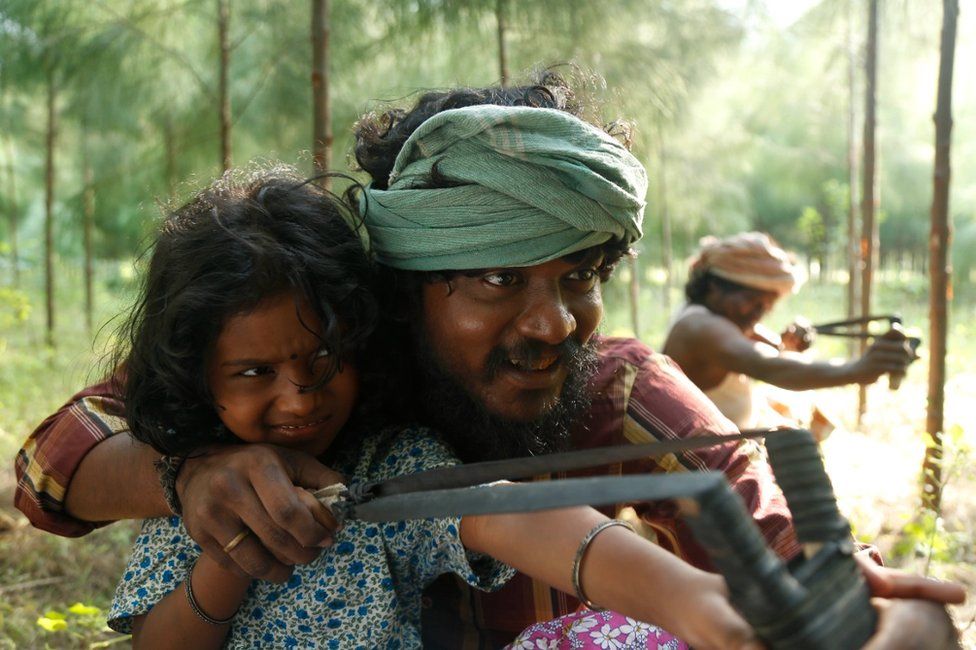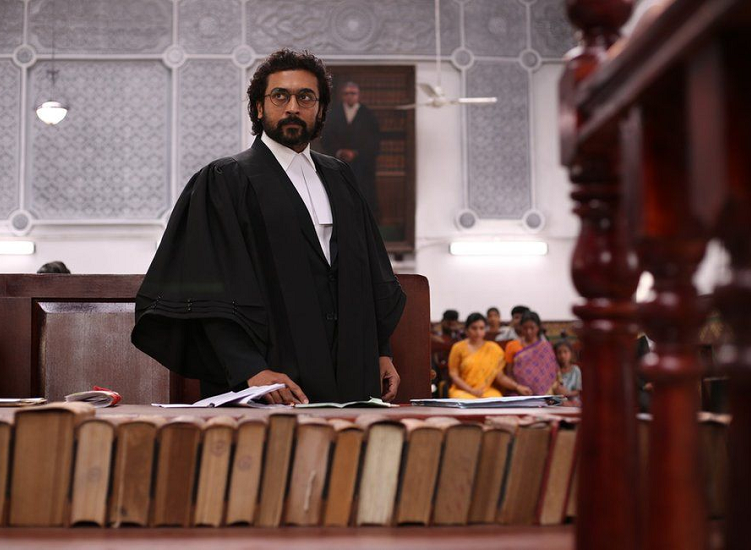Jai Bhim: The Indian film that overtook The Godfather on IMDb
Jai Bhim, a Tamil language film, has been rated the top film by users on IMDb, beating classics such as The Shawshank Redemption and The Godfather. It’s the latest in a line of hard-hitting Indian movies telling stories of repression against Dalits who are at the bottom of a rigid Hindu caste hierarchy, writes film journalist Aseem Chhabra.
At the beginning of Jai Bhim, police officers are shown separating a group of suspects based on their caste.
Those who are from the dominant castes are asked to leave, while others who are Dalits (formerly untouchables) or belong to tribal communities are asked to stay back. Later, police file false charges against those in the second group.
It’s a stark, disturbing scene, with frightened men standing in the corner, somewhat aware of their fate – a reminder that such activities occur routinely, and how precarious are the lives of the marginalised, especially Dalits, in small towns and rural India.
Dalits make up about 20% of India’s population, and despite laws to protect them they continue to face discrimination and violence.
Jai Bhim’s title translates to “Long Live Bhim”, a slogan made popular by the followers of BR Ambedkar, a Dalit scholar and leader, who was the chief architect of India’s constitution and also the country’s first law minister.
Directed by TJ Gnanavel, and backed by Tamil star Suriya, the film tells the true story of a crusading lawyer – played by Suriya – who fought for a petition filed by a pregnant woman whose husband was placed in police custody and later declared missing.
Jai Bhim is part of a new movement in Tamil cinema where a number of young filmmakers are narrating stories of repression against Dalits.
“In the last 30 years, beginning with the observance of Ambedkar’s centenary in 1991, the Dalit movement has been growing in Tamil Nadu,” said film historian S Theodore Baskaran.
“Forgotten Dalit ideologues of the 20th Century were redeemed from history. The ideas of [social activist and politician] Periyar and Ambedkar spread through the writings of many Dalit writers. In the last decade, some of the writers moved to cinema and made films. But they used the usual ingredients like songs, fights and melodrama.”

News Courtesy. BBC NEWS
